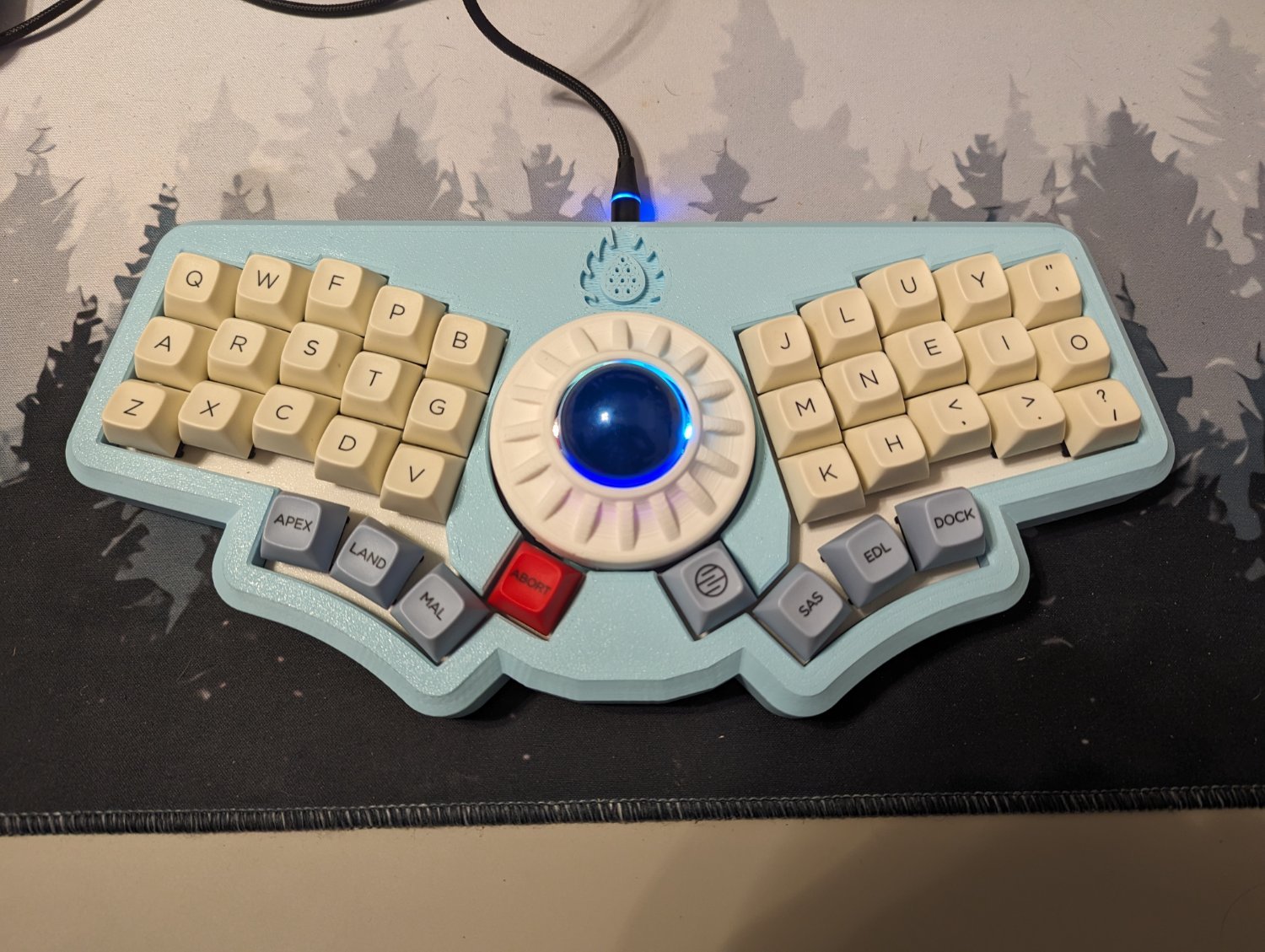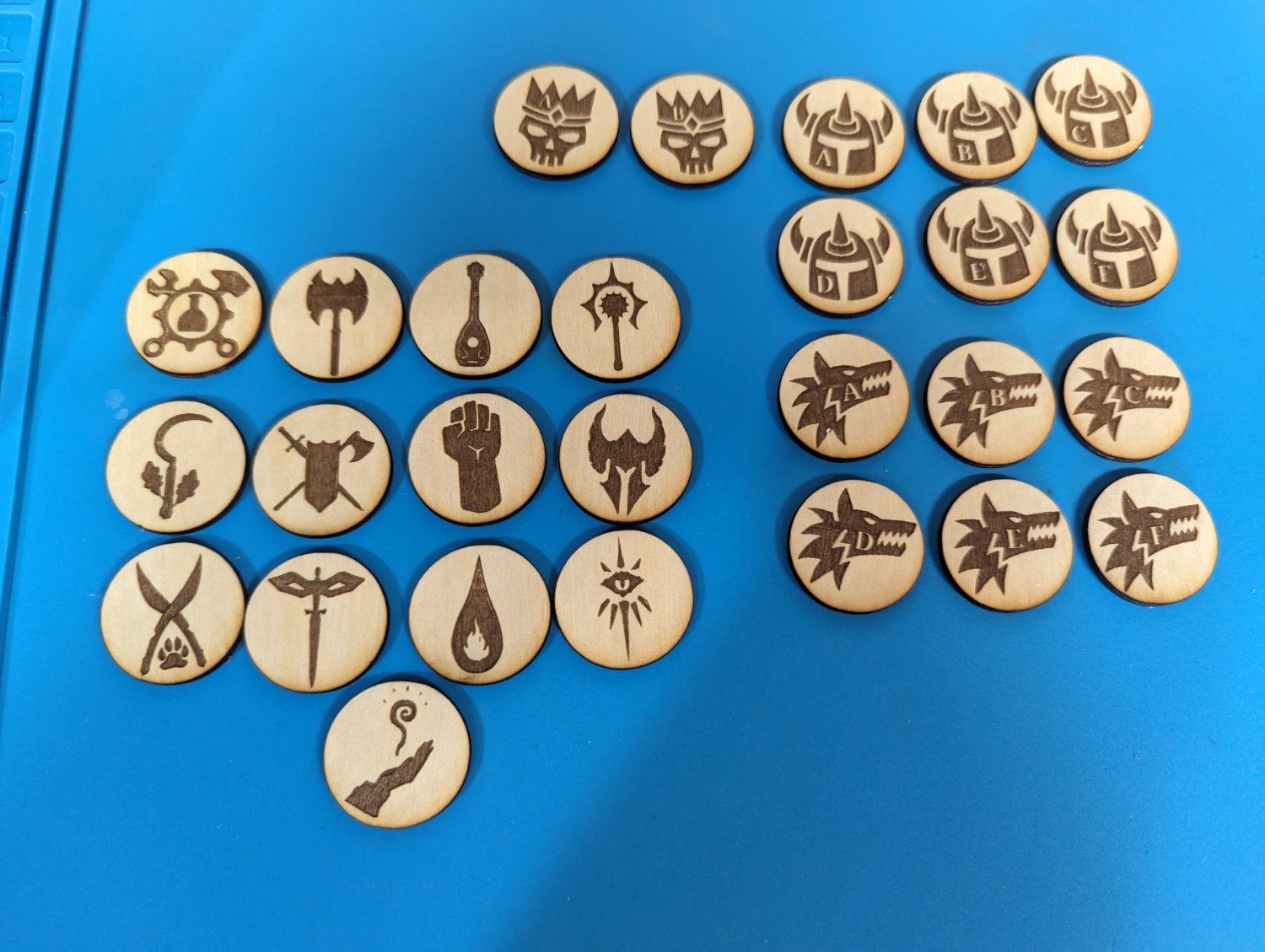Have you seen the Positron printer? Fits in a filament box when it's folded up, and takes just a few minutes to assemble. It's a very cool design.
DeltaWhy
Mozilla's Persona protocol/service could have been this, but it failed to get traction and they abandoned it. Maybe it was an idea that was just too early. Decentralized auth is a really hard problem.
Somewhat but not exactly. You can only go north or south until you hit the poles, but you can travel forever at angle zero starting from the center point. I guess you could call towards the center point "North" and away from it "south", so the galactic center is the North Pole but there is no equivalent South Pole. But angle zero is more analogous to the prime meridian - it's a line that goes north-south but there are an infinite number of such lines, and we could have called any of them zero.
I think it would not have a shape, or would rather be a zero dimensional point. For it to be any shape, it would have to have features, but you've already defined this as the fundamentally smallest 'thing' so it can't have any features smaller than itself. But you could also probably convince me that it's a sphere. I'm not sure if mathematicians consider a sphere of infinitesimal radius to still be a sphere or not, but treating it as infinitesimal kinda makes sense to me even if it's actually finitely small (the Planck length?)
A more interesting question to me is, assuming positions in space are discrete, which I'm not sure follows from saying there's a smallest possible object, how are those 'voxels' arranged? I don't think that's necessarily equivalent to asking what the shape of the smallest object would be. Pixels on a screen are in a rectangular grid, but the actual elements are circles in some types of screens.
There are a number of shapes besides cubes that can fill 3D space, but do the voxels even have to all be the same shape? Are we even looking for a 3D tiling, or could it be 4D in spacetime, or even higher dimension if it turns out the universe has more than 4 dimensions? Does it have to tile at all, or could it be entirely irregular while still being discrete? Is there any conceivable experiment that could prove any of these things, or is it unknowable?
The post says I'm the boss, so as a human I'm going to pick my own home galaxy as the reference. Alien species would have their own coordinate systems but it's not that hard to convert between them, or to specify which reference you're using. We'll already be converting between planetary/system/galactic/intergalactic coordinate systems all the time so it's not much harder to account for a few more.
Within the Milky Way a polar (cylindrical) coordinate system makes more sense than Cartesian - there's an axis of rotation to define the center and 'up/down' directions. Zero degrees is arbitrary but a line from the galactic center to Sol, projected onto the galactic plane, would be an obvious choice as a sort of galactic prime meridian. 'North' and 'south' don't really map to a roughly disc shaped galaxy - you'd use distance from center, angle, and 'elevation'.
On an intergalactic scale, the center of our own galaxy is probably still the obvious choice for a center point. We could use the same axis and meridian - I don't think the rotation of our galaxy matters on any human timescale, and on the time scales where it does matter, everything is moving relative to each other so coordinates already aren't 'fixed'. I'd use a spherical coordinate system instead of cylindrical for intergalactic coordinates, since things are not roughly in a plane anymore.
If you want a fixed coordinate you'd have to include a time dimension, and as the zero point for time I propose the Unix epoch. Not because it makes any sense but because it's extremely funny to imagine computer systems in the year 10000 still relying on that legacy decision. Though special relativity makes 'point in time' rather complex as well - I don't know enough to know what you'd actually need to make that work.
Of course we already have such coordinate systems for astronomy if you want to know the 'real' answer, one of them is pretty close to what I just came up with: https://en.wikipedia.org/wiki/Astronomical_coordinate_systems
Mullvad is a great VPN though, if Mozilla branding gets more people to use it instead of any of the scummy ones that are everywhere these days, it's a good thing for privacy, the open web, etc. - the causes Mozilla is supposed to represent. It's way better aligned with their goals than a lot of the other non-browser stuff they've been doing. I'd rather see them profit from that than from nonsense like 'sponsored stories' on the homepage.
Drop shipping is a great analogy though - branding and marketing is the only thing Mozilla is bringing to the table as far as I'm aware.
During the Reddit API stuff, same as most of the folks here. I tried kbin first but lack of an API or mobile app at the time pushed me to Lemmy instead.
I eventually caved and started using the official Reddit app, but I still check here as well - less content but I like the vibes here. Reddit hasn't been the same since the protests - might just be bias but I feel like 'brain drain' was real and quality discussions over there are a little less frequent than before.
I was thinking the photolithography process might be almost as important as the transistor itself. Without the ability to miniaturize transistors and create integrated circuits, we wouldn't have anywhere near the level of technology we can build now. A computer made of discrete transistors would be way more efficient, reliable, and cheaper than one made with vacuum tubes, but would still be very limited. There are things you fundamentally couldn't do with even thousands of discrete transistors that became possible once we were able to scale to millions and now billions.
My first VPS was for a Minecraft server so I named it cobblestone. I've kept using Minecraft related names for all my machines since then, and I try to pick ones that are at least vaguely related to the function or appearance of the machine. For example my cluster has brute for the master and piglin01-piglin04 for the workers, but those are the only ones I've numbered.
The exception is my two Klipper RPi's, one is octopi since that's what it originally ran, and the other is named after the model of the printer. For some reason I never named my printers.
I probably wouldn't use a naming scheme like this for production servers though - I'd either go with functional hostnames or something like the periodic table which you can pick from arbitrarily. My home servers and clients aren't cattle though, so I like having a little personality to the names there.
They definitely sell DRM'd books, it might even be the majority of books on the store. I think it depends on the publisher. I have managed to find some DRM-free books there though.


It's a kit like the Vorons and not a pre built machine, but it's finished and is shipping.